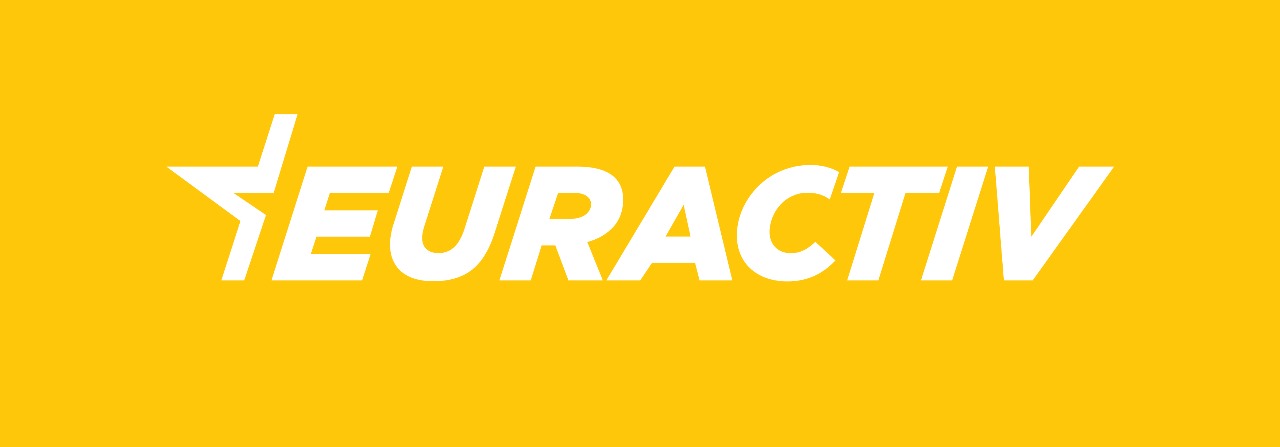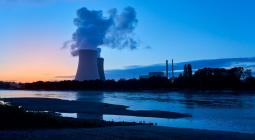Franco-British partnership to develop fourth-generation nuclear technology
UK company Newcleo and French company NAAREA are set to form a strategic partnership to accelerate the development of their fourth-generation nuclear technologies, the two announced in an interview with Euractiv France, AFP and Le Figaro on Tuesday (16 January).
On Tuesday, the two start-ups announced they were joining forces to “support the industrial, technological, scientific and regulatory deployment” of fourth-generation nuclear reactors, known as advanced modular reactors (AMRs), they said in a statement.
This category of reactors, part of the broader family of small modular reactors (SMRs), combines several technologies with the unique feature of using already used nuclear fuel from existing reactors.
Both companies already have projects in the pipeline.
While NAAREA is developing a molten salt-fast neutron nuclear micro-generator capable of producing 40 MW of electricity and 80 MW of heat, Newcleo is developing two concepts for lead-cooled mini-fast reactors (30 MW and 200 MW).
Both projects are scheduled for similar dates: 2026 for the non-nuclear prototype and 2030 for the first fueled prototype.
Together, the two companies hope to benefit from the synergies emerging at the European level by developing small modular reactors (SMRs).
In this sense, the partnership “complements the major industrial alliance for SMRs that will soon be launched by the European Commission,” according to the companies’ press release.
Announced in early November by EU Energy Commissioner Kadri Simson, the alliance is due to be launched in February, according to information obtained by Euractiv.
The partnership’s focus
According to the Memorandum of Understanding signed by the two companies, the focus will be on the fuel cycle, the financing of fuel cycle infrastructure, research and industrial development.
Although these areas of work are very different, the two manufacturers’ teams are already working together in some, “particularly in research, an area where there has perhaps been less contact,” David Briggs, deputy managing director of NAAREA, said in an interview on Tuesday.
According to him, This partnership could even provide a joint research base at the European level in collaboration with the Sustainable Nuclear Energy Technology Platform (SNETP), a centre of exchange and influence on nuclear energy in Europe.
Another key area of work for the partnership is developing a common approach for nuclear safety rules at the European level, an issue often raised by SMR stakeholders.
“We have already had informal discussions on this subject with the authorities in other member states as part of the meetings held under the aegis of NuclearEurope,” a trade association, Briggs added.
Objectives
As a first step, the two companies hope to find sites for their prototype in 2024 and secure access to fissile material.
To discuss this, a meeting will be held once a month, led by a steering committee made up of Briggs and Ludovic Vandendriesch, Newcleo’s managing director for France.
“The timing responds both to the environmental emergency and to the need for European 4th generation projects to emerge, to have solutions to the Chinese and American competition,” Briggs underlines.
Currently, the partnership concerns only NAAREA and Newcleo, although it is intended to extend to all 4th generation start-ups working on fast neutrons and wishing to do so.
“We didn’t wait for this agreement to make contacts and work with other companies in the sector,” Briggs said.
“If we act quickly, we’ll be able to create synergy across an ecosystem,” David Vannier, head of government relations at Newcleo, added in an interview on Tuesday.
Public and EU funding
“This collaboration is the result of the desire of the French government and the European authorities to make progress in nuclear energy. We are working directly with them,” explains Vannier.
As proof of this, NAAREA and Newcleo are both winners of the “Innovative Nuclear Reactors” call for projects under the France 2030 investment plan, which has earmarked €1 billion for the nuclear industry.
In terms of funding, the two companies will use their own resources, although they hope to benefit from EU funding ultimately.
“We are ready to go and get it,” Briggs said.
At the same time, the SMR Alliance, announced by the EU Commission in December, could provide an opportunity to lobby for Important Project of Common European Interests (IPCEI) in this field along the lines of other alliances: battery, solar, hydrogen and others.
Cover photo: On Tuesday, the two start-ups announced they were joining forces to "support the industrial, technological, scientific and regulatory deployment" of fourth-generation nuclear reactors, known as advanced modular reactors (AMRs), they said on a press release. [Shutterstock]



